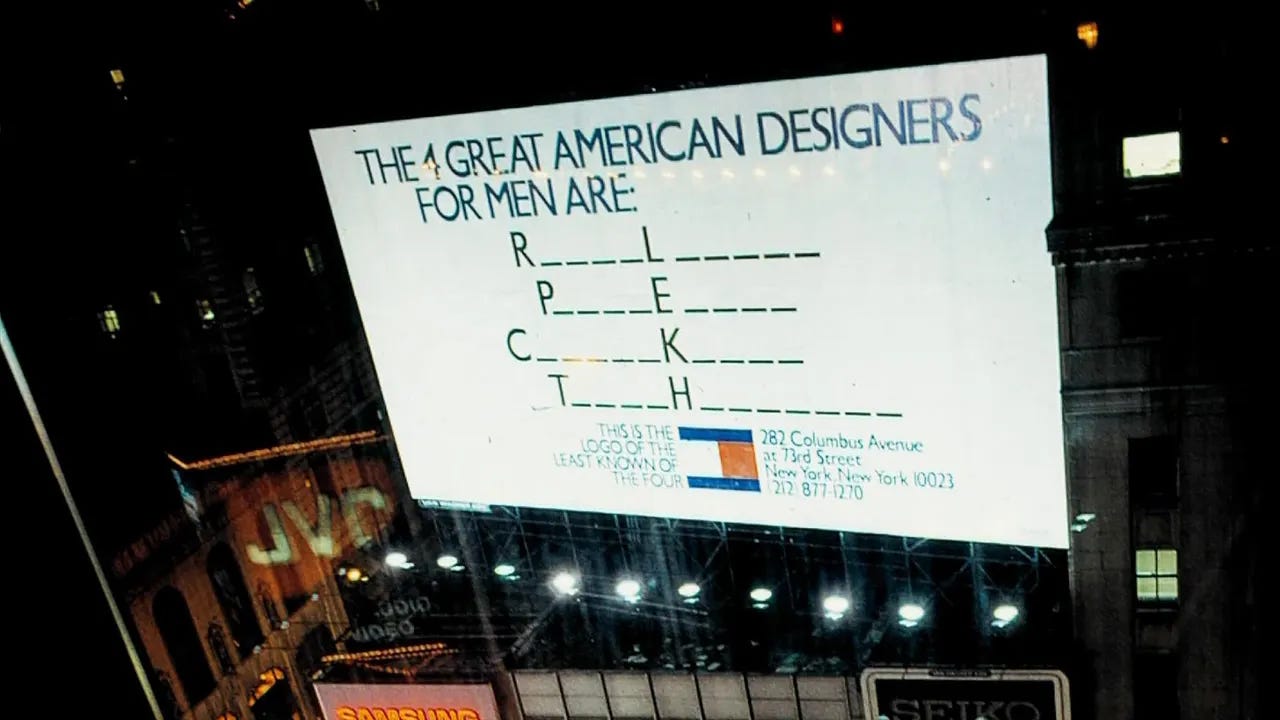73 - Is Money a Creativity Killer?
Has booking travel become 7x worse than before? How is creativity and capital related in marketing. Founder mode and hotel GMs. B2B marketing research. Evolution of hotel management agreements.
Hello,
This week, advertising and marketing became more interesting than AI news. At least for me. Here are my “hot takes” on some of the recent news.
BTW, I was invited on the Hospitality Daily Podcast and spoke about technology in hospitality and some thoughts on what wont change in hospitality.
Best, Martin
About me: I'm a fractional CMO for large travel technology companies helping turn them into industry leaders. I'm also the co-founder of 10minutes.news a hotel news media that is unsensational, factual and keeps hoteliers updated on the industry – also it is the most read hotel newsletter in Europe. See the international edition of the newsletter and subscribe to it here. I'm also a co-founder of Klairhaus, a premium office accessories brand that makes products with particular care for craftsmanship and design.
Support the newsletter, treat yourself to great office gadgets.
Is booking travel 7x worse than before?
Research by Expedia found that consumers visit, wait for it, 277 websites before booking their travel. Research done in 2013 found 38 website. Are we just being inundated by choice and confusion? Or have people just become passionate travel researchers? The access to unlimited information, reviews, opinions, pricing has surely given consumers the feeling that they’re more in control of their travel budget. I used to think an AI solution that gives a single “perfect” solution for a trip would be the best way forward. But I’m not sure it will. AI surely will help, but there’s a certain comfort (for some) to know that they’ve checked 276 other sites and they really did book the best solution. It all comes down to how much is one’s time worth.
TRAVEL BOOKING RESEARCH
Founder Mode
Last week, Paul Graham published an article on Founder Mode. The tech industry has been on fire discussing it. Some have over-simplified the concept to mean, someone who skips channels. But, one article from someone who worked with Zuckerberg during Facebook years, gave a great story. That every manager, executive etc needs to have direct project that they do, i.e. keep their hands dirty. I think there’s a good parallel between Founder Mode and hotel General Manager. Running a small/mid-size hotel requires a lot of hands-on work. If something is not right in the hotel, the GM doesn’t write an email about it, they fix it. As I wrote on a Linkedin post some time ago, if you need someone who can get things done. Find someone who has been a hotel GM.
PROFESSIONAL FAKERS
B2B Marketing and agreement
B2B marketing and sales have a time-old problem. 1. It is always easier for a group to push off a buying decision to later and 2. Who are the real influencers in the buying cycle? There are many people who can say “no” only few who can say “yes”. How to get the whole group interested with the products, educated on the problem, familiar with the brand and willing to have a discussion past their prejudices. Linkedin did some research with Forrester, yes it is self-serving research - but it is quite interesting. Mostly for B2B companies.
B2B BUYING DYNAMICS
Finding the right freebies
One of the “secrets” of great guest satisfaction and exceptional reviews is Freebies. But you need to find the right one for you. And a little tip, based on past mistakes, ensure the guest has a visual reminder of the freebie that they just got - for example on their invoice. But you need to find the one that’s right for you. If everyone gives a warm cookie as a freebie, it will be considered normal and guests wont consider it a freebie. Is a free bike the right one for you? A bottle of wine? A metro ticket for the day? the one that’s on-brand, that is economically sound and which provides best value. (shameless plug: you could also give them a Klairhaus office product)
NUGGETS FOR HOTELS
To brand or not to brand?
Deciding to brand a one’s hotel is… an expensive choice. It isn’t a bad choice, but it is not a cheap one. There’s a certain security with branding one’s hotel. So if one is looking to have a managed real-estate investment, branding is probably a good idea. If one is a little more entrepreneurial and interested in making more revenue per square foot (and has a tier 1 location) independent is probably a good idea. But there’s a lot more to consider than that. JLL did an interesting research on Hotel Management agreements in APAC and the evolution over the years. Would love to see if this is the same in Europe and Americas.
HOTEL MANAGEMENT TRENDS
THOUGHTS:
Is Money the Creativity Killer?
Some years ago when working with a marketing manager on my team I was sent a marketing plan that was essentially a copy and paste of some text-book list of marketing actions, plus a cost appended to each item. After my initial reaction about how could someone submit something with so little creativity and zero “big idea”. I realized that the campaign could have worked. If we threw enough money at it we could have spammed our way to success.
I made a note to self that there is a scale, great marketing people use the budget constraints to find more creative (and effective) solutions, they come up with better “big ideas”. And they drive brilliant execution.
Mediocre marketing people compensate for the lack of creativity by requesting large budgets for to execute boring ideas.
Unfortunately for the marketing world and the consumers, the latter can generate as many sales as the prior. In fact with today’s programmatic digital marketing channels it is almost easier - if you have access to capital.
Ogilvy talks about finding the “big idea”. Often this is misinterpreted into finding some crazy idea, that will either never get approved or never get executed. While there is some value in limitless brainstorming, but it is mostly “therapeutic” and not very practical. If you look around you’ll notice that most creativity exists because of limits.
The key with the big idea is, can you execute it with existing resources. This is somehow a factor that a huge amount of marketing people ignore. An idea is only as good as it can be executed. That it can be executed means you have the budget, the talent, the time and that it is on-brand.
That’s the big idea. It isn’t just an expensive idea, or a provocative idea, or a physically big idea. And somehow creating within constraints is rarely taught and practiced in school, maybe because it is just too hard to set-up a virtual environment for it.
Even if you have a lot of capital to spend, the big idea is going to make it a lot more fun to execute and your market will thank you for it.
If you dont have a big idea, you can drown the market in a huge volume of boring ads. It will likely cost the double, it is probably going to work, and if it doesn’t just add more money.
But most marketing people signed up for the creative part. And for that, every great creative will tell you - constraints are the best way to become really good.









